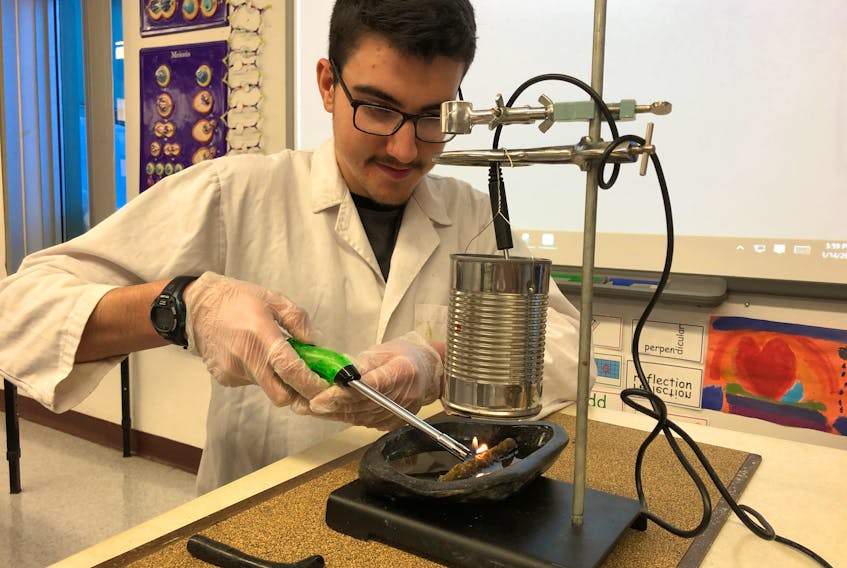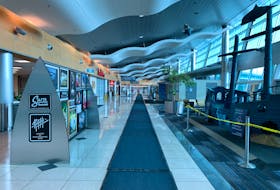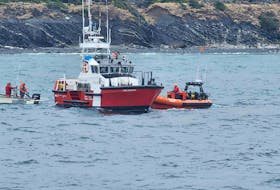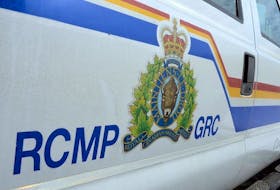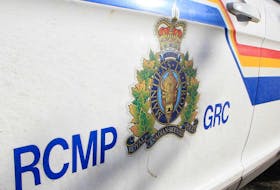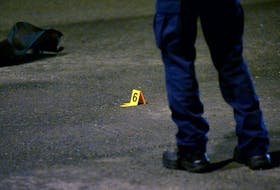ST. JOHN'S, N.L. — Rosie Mullaley
The Telegram
The COVID-19 pandemic may have put a damper on students’ plans to gather and display their projects at the province’s largest annual science fair, but organizers have come up with an experiment of their own to make it happen.
While the 2020 Husky Energy Eastern Newfoundland Science and Technology Fair was recently cancelled due to the COVID-19 pandemic, students in Grades 7 to 12 in the eastern region will, instead, compete in a virtual fair.
Hosted by the Eastern Newfoundland Science Fairs Council, the regional online event will be held Wednesday and will see students judged on their projects by a group of judges online for the chance to win cash prizes and other awards.
“Schools are no longer operating, but a lot of students had already put a lot of hard work into their projects,” said Yvonne Dawe of the Eastern Newfoundland Science Fairs Council. “It hardly seemed fair that they didn’t get to compete.
“It will be quite different than what they’re used to, but I think teachers and students will enjoy the experience.”
The regional science fair, ongoing since the 1980s, usually attracts up to 150 entries. Despite lower numbers — due mostly to the less school work students have had to do since schools closed — there are still dozens of entries, Dawe said.
But it’s not the only virtual science fair set for this year.
For the first time, there will be a science fair for students outside the Eastern region. Planned before the COVID-19 pandemic happened, the NL Virtual Science and Technology Fair will be held Saturday.
“We were really interested in getting more students involved from across the province,” said Dawe, a Centre for Distance Learning and Innovation high school science e-teacher, who has students in various regions of the province.
“There are so many highly intelligent, very capable, creative young people in other regions and they didn’t get a chance to compete,” she said, adding that the Eastern council developed a booklet last fall for program specialists with tips for teachers and students in both English and French school districts on how to come up with science fair ideas and how-to instructions.
“We wanted to give them that opportunity to do that and the chance to go to the national competition. While they can’t go to the nationals this year, with it being cancelled, they’re still able to show their work.”
Nicholas Flowers — a Grade 12 student at Amos Comenius Memorial School in Hopedale, Labrador — is glad they did. He’s looking forward to competing in his first science fair.
“I’m really excited about it,” the 17-year-old told The Telegram. “It’ll be especially interesting with it being online.”
Flowers has been working diligently for the last number of months researching the fuel value and efficiency of burning seal oil (known as utsuk in Inuttitut) in soapstone lamps (kullik), which he said were used by his family’s ancestors for many centuries.
After harvesting seal oil, Flowers contacted Dawe, who encouraged him to turn his findings into a project for the science fair.
“Seeing it relates to our culture as Inuit, I thought it would be a great idea,” said Flowers, who became interested in land-based science as child, learning about wildlife and nature from hunting and gathering excursions with his parents. “It was a traditional Inuit practice to burn the seal oil.”
Instead of judges walking around a gymnasium to view projects, judges — both English and French — will gather on Google Classroom with students for evaluation. Each student will follow a scheduled time and will have 10-15 minutes to present to the group of judges, with another 10-15 minutes to answer judges’ questions.
Organizers hope the online science fair outside Eastern will grow as more students get involved.
Students from this province can compete in the Youth Science Canada national science fair, which will also host an online STEM fair this year. Students can participate in this national fair without participating in a regional fair. The deadline to register is Tuesday, May 18.
More information on the virtual fairs can be found online at http://ensfc.wordpress.com.
@TelyRosie
www.facebook.com/rosiemullaley/

